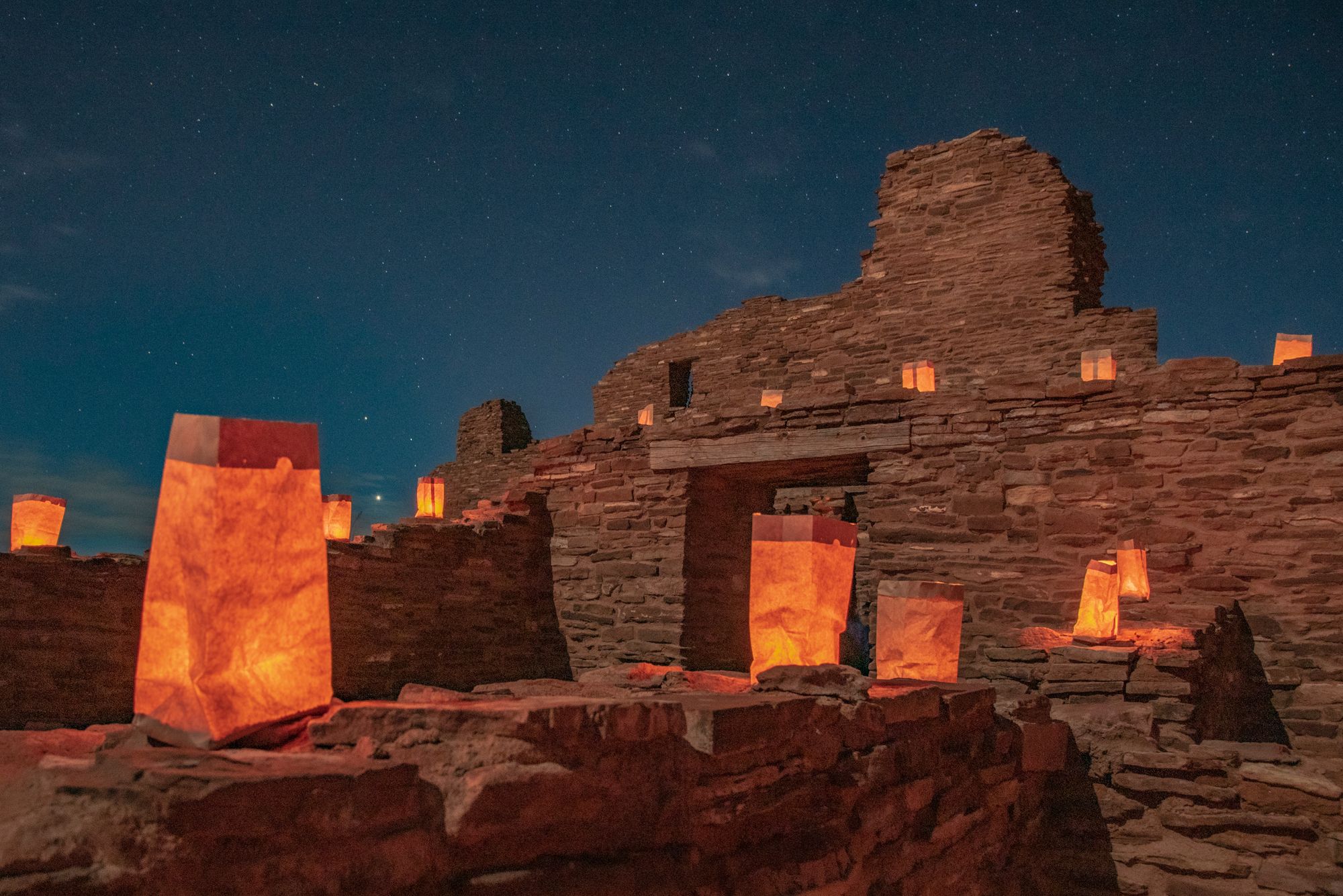Town Council and Mayor Respond to NMDOT Presentation


The November 21, 2023, meeting of the Mountainair Town Council was a clamorous one. The agenda listed November 16, 2023 presentation by New Mexico Department of Transportation (NMDOT) contractors regarding its plans for US-60 as one of two matters before the council. That NMDOT presentation had ended with an engineer's words drifting off mid-statement as he - Matthew Nighbert of Souder Miller & Associates - realized he had lost the goodwill of the audience. Five days after the NMDOT presentation, Mountainair residents continued to complain regarding plans that included back-in parking in the town's central business district and bike lanes along the edges of the highway.
The question remaining after the NMDOT presentation was whether residents’ frustrations would coalesce into a mandate for a specific course of action.
“We can do what we can, and we can ask for what we wish to ask for, but that doesn’t mean we’re going to get it,” Mayor Peter Nieto said at the beginning of the discussion. “At the end of the day, we are at their mercy. What they choose to do is what they choose to do.”
Nieto went on to hash out potential strategies to address the audience’s concerns with the NMDOT proposal. One proposal discussed included moving the bicycle lanes to Main Street from US-60 in Mountainair's Central Business District and changing from back-in diagonal parking to front-in diagonal parking within the Central Business District.
Nieto discussed the federal requirement that tied multimodal transportation, such as the US-60 project’s bike lanes, to federal funding for roadwork. "Why aren't [the US Department of Transportation (USDOT) and NMDOT] picking on Albuquerque?" one audience member asked, "Why don't you put bike lanes down the middle of Central Avenue in Albuquerque? Why are they picking on little towns other than to have control directly?"
Nieto responded, "... It's not - you can't have your cake and eat it too. Like, if we want new stuff, we're gonna have to have construction, and we're gonna have to deal with [the federal multimodal transportation mandate] for sure." In the end, Mayor Nieto said that the town would have its attorney draft a letter to NMDOT requesting a change to the back-in parking component of the project and the movement of bike lanes from Broadway (US-60) to Main Street.
How Bike Lane Mandates Became a Part of Federal Funding Requirements
Federal funding for highway projects such as the Mountainair portion of US-60 come from the Nationally Significant Multimodal Freight and Highways Projects grants program (INFRA), a program run by the USDOT. See Notice of Funding Opportunity for the Department of Transportation's Multimodal Project Discretionary Grant Opportunity, 87 FR 17108 (Mar. 25, 2022). The USDOT based this grant program on a law passed by Congress in 2021. See PL 117-58, the Infrastructure Investment and Jobs Act, codified as 23 USC 101 (2021). Under the grants program, certain highway projects are eligible for grant money provided the project:
- minimizes supply chain bottlenecks;
- provides affordable transportation options like bike lanes and public transportation;
- decreases transportation costs;
- Increases the economic productivity of a rural area by increasing its connection to urban areas;
- increases a region's tourism-related profitability;
- Increases job creation in a region;
- Increases jobs for underrepresented groups;
- Supports integrated land use (i.e., mixed commercial and residential land use); and,
- Supports efforts to mitigate climate change.
See 87 FR 17118-17120.
For Mountainair residents interested in major changes to the US-60 project, one challenge may be that the funding for the project was given on the condition that the project meet the standards that NMDOT said it would when it applied for the grant, which would mean supporting the previously-listed goals.
Multimodal Transportation: Part of a Long History of Tying Federal Funds to Federal Demands
The multimodal transportation requirement that many in Mountainair have expressed frustration with is not the first federal requirement mandated to those seeking federal road improvement funding. The federal government did the same with speed limits, seat belts, and the drinking age. In January 1974, Congress passed the Emergency Highway Energy Conservation Act of 1974, which included an energy-saving provision prohibiting speed limits above 55 miles per hour (MPH). See PL 93-239 (Jan. 2, 1974). The federal government found few states actively enforced this provision during the Nixon, Ford, and Carter administrations. In the 1980s, however, the Reagan and H.W. Bush administrations tried to crack down on states that failed to abide by the federally-mandated speed limit by cutting off federal highway funding for states that failed to enforce the law. Notably, Arizona and Vermont were denied federal highway funding in 1986. See Reginald Stuart, 2 States to Lose Highway Aid for Violations of Speed Limit, New York Times (May 29, 1986).
Similarly, starting in 1984, the Reagan Administration required that federal highway funding be tied to a mandate that states enforce mandatory usage of seat belts. By 1993, all but five states (Kentucky, Maine, Massachusetts, New Hampshire, and South Dakota) had mandatory seat belt laws. See Tamar Lewin, Seat-Belt Laws Grow, But by Fits and Starts, New York Times (Aug. 15, 1993).
In the same year (1984) that the federal government tied highway money to seat belt laws, it tied highway funds to states raising their drinking age to 21. See the National Minimum Drinking Age Act of 1984, 23 USC § 158 (1984). The US Supreme Court authorized the federal government to take these steps in 1987 when then-Chief Justice William Rehnquist ruled that the 21st Amendment's repeal of prohibition did not bar the federal government from seeking uniformity in drinking ages. See South Dakota v. Dole, 483 US 203 (1987) (in an interesting reversal of typical roles, liberal Justice William Brennan took a libertarian stance in a dissent that agreed with conservative Justice Sandra Day O'Connor's dissent, which argued that the 21st Amendment made the drinking age a matter of states' rights).
The requirement that highway improvements be tied to the inclusion of multimodal transportation methods, such as bicycle lanes, is part of a tradition in federal law-making that goes back to the Nixon Administration. The Reagan and H.W. Bush administrations gave the tradition a carrot-and-stick approach when they took away highway money from non-compliant states.
